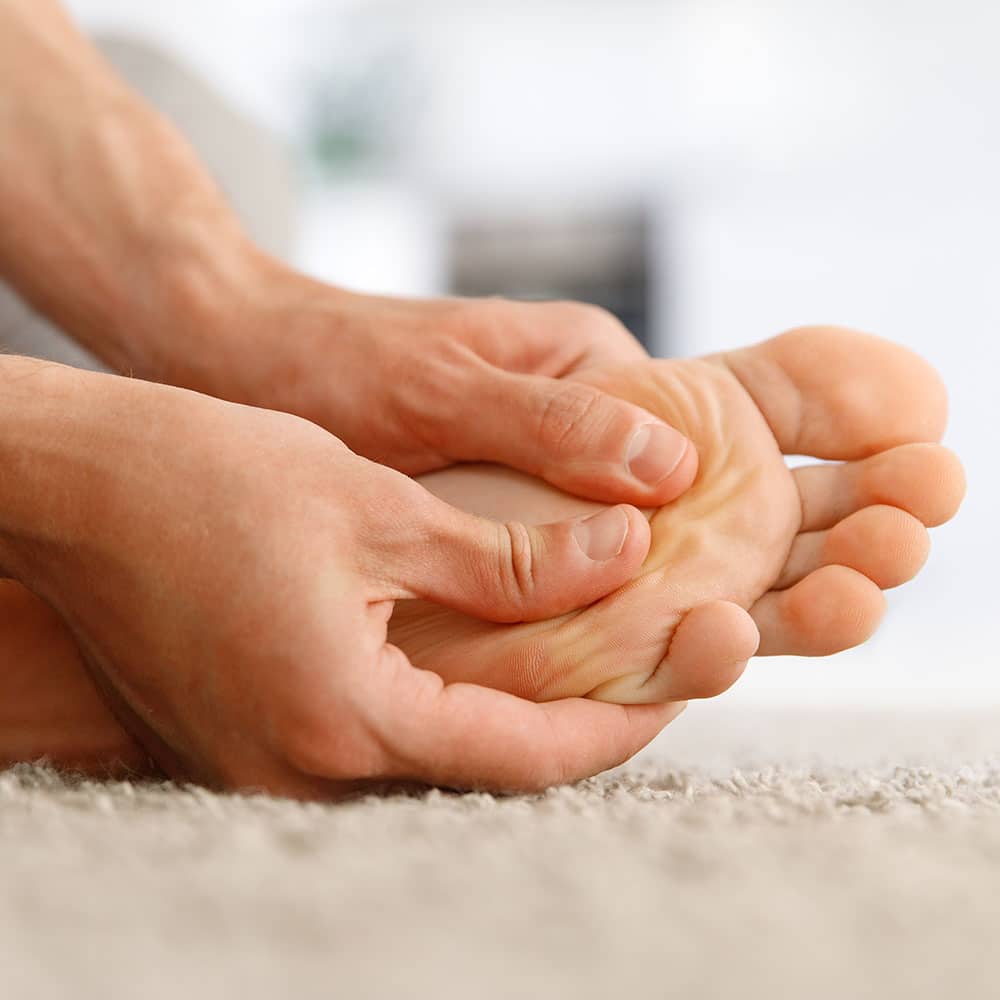Diabetic Neuropathy
Diabetes adversely affects those who have been diagnosed in many ways. Diabetic neuropathy is among the disease’s most common complications, causing nerve pain in the feet and legs along with several other symptoms.
What is Diabetic Neuropathy?
When a patient with diabetes experiences a spike in their blood sugar, it can injure nerves, causing numbness, tingling, and more. Depending on which part of their body is affected, they can be diagnosed with one or more of the four types of diabetic neuropathy.
The most common type, peripheral neuropathy, starts in the feet and legs and can spread to the arms and hands. People with this form of neuropathy usually experience the following symptoms in or around their lower extremities:
- Numbness or reduced sensation of pain or temperature change
- Tingling or burning
- Muscle weakness
- Hindered ankle reflexes
- Worsening balance and coordination
- Difficulty sleeping
- Ulcers and infection
- Bone and joint pain
Since the symptoms of neuropathy typically have a gradual onset, people often won’t notice they have it until the nerve damage has progressed. That’s why it’s so important to receive regular foot and ankle care from the professionals at Foot and Ankle Specialists of Central PA, especially if you’ve been diagnosed with diabetes.
Diabetic Neuropathy Treatment
If left untreated, diabetic neuropathy can cause complications such as serious infection, ulcers, and even amputation. While there is currently no known cure for diabetic neuropathy, there are several effective ways to slow and even stop its development.
During your visit to Foot and Ankle Specialists of Central PA, one of our award-winning doctors will perform a thorough medical history, making sure to ask about your medications, pre-existing medical conditions, and treatment goals. After they’ve developed a clear picture of your condition, they will administer a diagnosis and get you started on a personalized diabetic foot care treatment plan that includes:
Blood Sugar Maintenance
One of the most important things our team will help you do is keep your blood sugar at an optimal level. Depending on your needs, our staff might recommend the use of an at-home blood monitor, the administration of an A1C test, or the prescription of certain medications. No matter what, we will work with you to help maintain your glucose levels and prevent your diabetic neuropathy from worsening.
Behavioral Changes
Quitting smoking and exercising regularly are two of the most impactful lifestyle changes you can make to slow or prevent diabetic neuropathy. As part of our holistic treatment process, we consider the behavioral changes that may positively impact your prognosis. Our team will collaborate with you to create an action plan to slow diabetic neuropathy and improve overall health.
Foot Care
With the right protective shoes, hygiene habits, and checkup schedule, you can prevent many complications of diabetic neuropathy. First, wearing cushioned shoes that fit well will help guard against injury and prevent corns or calluses.
Next, trimming your toenails and keeping your feet clean and dry helps prevent cuts, infections, and more. Finally, an annual exam at Foot and Ankle Specialists of Central PA allows our team to catch issues before they worsen and begin treatment when needed.
Call Us Today
If you’re experiencing any of the symptoms above or have concerns about foot health after a diabetes diagnosis, contact Foot and Ankle Specialists of Central PA today. Our highly trained physician-surgeons can provide the diabetic neuropathy treatment needed to promote better health and well-being. Returning patients may visit our patient portal for more information.


